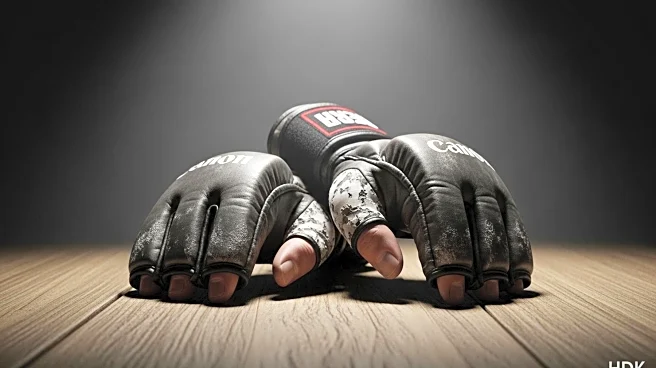What's Happening?
Former UFC interim lightweight champion Dustin Poirier has publicly expressed his longing for mixed martial arts (MMA) following his retirement. Poirier shared on social media that he misses fighting every day, describing the feeling as a part of him having died. Poirier, who dedicated two decades to the sport, last fought against Max Holloway at UFC 318 in July, where he lost by unanimous decision. Following this defeat, Poirier announced his retirement, concluding his career with a record of 30 wins, 10 losses, and one no-contest.
Why It's Important?
Poirier's sentiments highlight the emotional and psychological challenges athletes face upon retiring from professional sports. His statement underscores the deep connection and identity athletes develop with their sport, which can lead to significant personal adjustments post-retirement. This revelation may resonate with other retired athletes and prompt discussions about support systems for athletes transitioning out of active competition. Poirier's career achievements and popularity in the MMA community also bring attention to the broader impact of retirement on sports culture and fan engagement.
What's Next?
While Poirier has announced his retirement, his recent comments may spark speculation about a potential return to the sport, a common occurrence among retired athletes who miss the competitive environment. Additionally, Poirier's reflections could lead to increased advocacy for mental health resources and support networks for retired athletes. The MMA community may also see discussions on how to better prepare athletes for life after sports, ensuring they have the necessary tools to navigate this transition.
Beyond the Headlines
Poirier's emotional disclosure may influence the cultural perception of retirement in sports, highlighting the need for comprehensive career transition programs. It also raises ethical considerations regarding the pressures athletes face to continue competing despite personal struggles. The long-term impact of such revelations could lead to more open conversations about the mental health challenges associated with sports careers, potentially driving policy changes within sports organizations.









